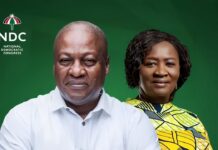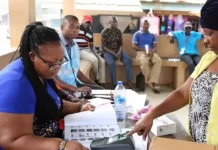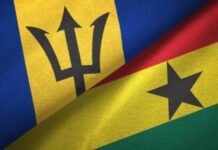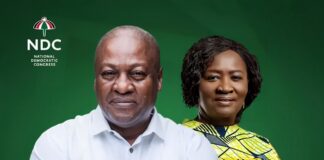
Bank of Ghana (BoG) Governor Dr. Ernest Addison has conveyed optimism regarding prospective impacts from the domestic gold for reserves programme in strengthening reserves as the country moves into 2024.
During an interview held on the sidelines of ECCB 40th anniversary and Central Banking Autumn meetings in Saint Kitts and Nevis during November 2023, the Governor expressed confidence in the programme’s ability to fortify reserves in the upcoming year.
Dr. Addison highlighted: “This year [2023] alone, we have been ahead of our reserve target by almost US$1billion. So, we plan to continue with the domestic gold for reserves programme; and that should help in terms of building reserves going into 2024.
“I believe in October the reserve equivalent was 1.1 months of import cover, better than they were in August. But the three months’ reserve target is again part of the three-year horizon. What I can say is that our domestic gold-purchasing programme has put us in a better situation than before.”
Dr. Addison elucidated that despite Ghana’s substantial gold production, the country has traditionally maintained a static gold reserve of about 8.7 tonnes for the past 40 to 50 years.
“There is a lot of activity out there. So, the question then came up as to why not buy more gold to increase our reserves. It was one of those moments when an obvious policy that could have been implemented several years ago appears to make a lot of sense – especially during the post-Covid period when we were looking at several ways to manage the crisis. We started it in 2021,” he explained.
The Governor emphasised the programme’s material impact in stabilising the currency, particularly in 2023. He remarked: “That’s because the gold reserves programme has raised over US$1billion compared with the IMF’s US$600million disbursement since the start of 2023 – with another US$600million due. So, it is a significant amount”.
Gross International Reserves – excluding pledged assets and petroleum funds – exhibited a notable increase, the Bank highlighted during its November MPC press briefing. The reserves, as per the IMF-supported programme, escalated to US$2.5billion (equivalent to 1.1 months of import cover) by the end of October 2023; marking a rise from the December 2022 position of US$1.5billion (0.6 month of import cover). This upsurge of approximately US$1billion was primarily attributed to the gold for reserves programme.
Reflecting on the challenges faced in 2022, Dr. Addison recalled: “By second-quarter 2022, the currency took a severe hit because of significant portfolio outflows and heightened speculation about an IMF programme, even as government had taken a strong stance of not going to the IMF.
“The foreign exchange market became disorderly, and the cedi depreciated sharply. Once you get that type of exchange rate depreciation in a country like Ghana, the pass-through to price level changes is rapid and becomes quite significant. By middle of the year it became obvious to government that the only way out of the crisis was to approach the IMF,” the Governor emphasised.
The foreign exchange market’s relative stability has predominantly been supported by inflows from the IMF ECF first tranche, Ghana’s Domestic Gold Purchase Programme, as well as acquisitions of repatriated export proceeds from mining companies and oil & gas producers.
THEBFTONLINE.COM


























